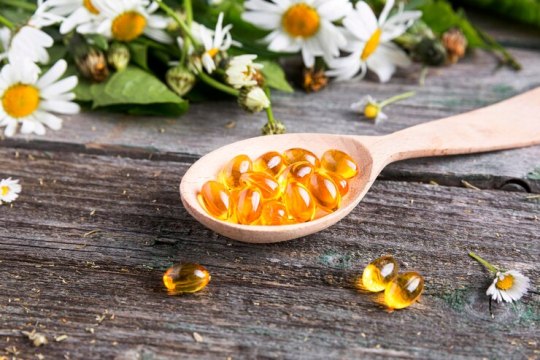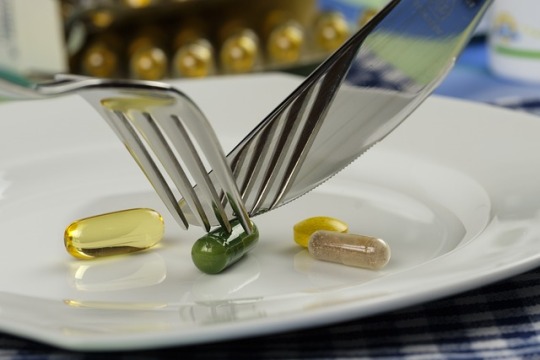#Vitamin E deficiency
Explore tagged Tumblr posts
Text
Vitamin E: Symptoms of Deficiency
Vitamin E deficiency is relatively rare but can occur in certain situations, particularly when fat absorption is impaired or in individuals with specific genetic conditions. Here are some common symptoms and signs of E vitamin deficiency: Vitamin E: Neurological Problems Peripheral Neuropathy: Damage to the peripheral nerves causing numbness, tingling, and weakness, particularly in the hands…

View On WordPress
#Vitamin E absorption#Vitamin E and aging#Vitamin E and Alzheimer’s#Vitamin E and cancer prevention#Vitamin E and diabetes#Vitamin E and heart health#Vitamin E anti-inflammatory#Vitamin E antioxidant#Vitamin E benefits#Vitamin E benefits for men#Vitamin E capsules#Vitamin E deficiency#Vitamin E dosage#Vitamin E foods#Vitamin E for hair#Vitamin E for immune system#Vitamin E for muscle health#Vitamin E for reproductive health#Vitamin E for skin#Vitamin E in diet#Vitamin E oil#Vitamin E serum#Vitamin E side effects#Vitamin E skin care#Vitamin E sources#Vitamin E supplements#Vitamin E Symptoms of Deficiency#Vitamin E toxicity
0 notes
Text
Health benefits, Deficiency, Toxicity and Source of Vitamin E
Health benefits, Deficiency, Toxicity and Source of Vitamin E
Health benefits of Vitamin E It is an Antioxidant which may help protect cell membrane from Reactive Oxygen Species (ROS). Example of ROS Peroxide Superoxide Hydroxyl Radical Singlet Oxygen and Alpha Oxygen vitamin E used in Skincare and Wound Treatment Products. It may help to lower incidence of Cardiovascular Diseases ( Disease of heart and blood Vessels), Cancer, Dementia and other…

View On WordPress
#Sign of vitamin e toxicity#signs of vitamin e deficiency#source of vitamin e#symptoms of vitamin e toxicity#symptoms vitamin e deficiency#Vitamin E#Vitamin E benefits#vitamin e deficiency#Vitamin e deficiency diseases#Vitamin E foods#vitamin e health benefits#Vitamin e toxicity diseases
0 notes
Text


THE POWER OF PASILYO GUARANTEED ME A NAVIA HAVER ❕❕❕
#screaming crying throwing up#etc etc#SHES SO PRETTY BROOO#PLUS PRETTIEST VISION 🥹❕#all geos are so pretty fneksks#except itto I'm an itto hater /j#my pulling luck is so bad bro#pretty sure i got her at at least 70 pity#n e ways my girl is home 🥹#I had that mother instinct I KNEW she was coming home i felt it in my vitamin d deficient bones#navia#genshin
16 notes
·
View notes
Text
obsessed w buying random food w added vitamins to feel im making healthy choices #gocapitalism.. and it's funny how these are always branded for kids. Yes im a parent at the grocery store buying nutritious snacks for my 6 yr old son (myself).
#i eat fruits every day but i always have b12 and vitamin d deficiencies and these foods for babies are helping i think#acabei de comer de cafe da manha: cafe com leite ninho + banana amassada com farinha lactea sem marca e cereal..
2 notes
·
View notes
Text
theres this really good nut mix at aldi that i bought meself for my birthday and have been daydreaming about ever since but i fear if i got into the habit of purchasing it i would go bankrupt in 2 seconds you can't have shit on planet earth
9 notes
·
View notes
Text
If there is a god, they must have been having a psychotic breakdown when they made my body.
#in another surprising twist#the pill? makes me permanently exhausted#so I stopped that because I was only taking it for the two uteruses#I was deficient in vitamin e so I took supplements and what do you know?#doubly exhausted#I could barely get out of bed#so I stopped those#now I’m on the nuva ring because that’s supposed to send the signals straight to the source or whatever#and not travel round through the brain#guess who’s suddenly exhausted again?#this isn’t supposed to happen#my options shouldn’t be crippled with pain or too tired to do anything
0 notes
Text
Good news! My blood tests came back and none of the levels that are off are associated with heart damage! So I can probably stop worrying that I did actually have a heart attack instead of just an anxiety episode that probably got a little out of hand.
Bad news! I might have kidney damage instead!
#ive had covid twice already this year and its definitely making my health anxiety worse#especially because covid can cause heart and kidney damage#im apparently also severely iron deficient but NOT anemic which i didnt know was a thing#i take my vitamins almost religiously#theyve got iron and i hardly ever miss a day#its also been W E E K S since ive had any bleeding that even waranted a panty liner#so if its from the weird sort of period then why are my levels still SO bad when i havent been bleeding for weeks#and it was incredibly light for weeks before that?#i forsee a LOT of medical testing in my future
0 notes
Text
I need to buy vitamins.
#there's prolly a better reason to get them (like to prevent deficiency or w/e)#but i want em cus i feel like life is a little better when you have a little vitamin to take#in the morning
0 notes
Text
You want to know what will always be bullshit? Anything that claims you are Just Lacking This One Thing and you need to take high doses of it, unless your allopathic medical provider literally tested you and told you that. Damn near every study we’ve ever seen of taking high dose supplements of anything you’re not actively deficient in shows that it’s either useless or dangerous. It’s worse than doing nothing, because bare minimum you’re wasting money. High doses of niacin, vitamin C, vitamin D, vitamin E. High doses of calcium. If it’s been well studied, there are usually consequences to taking a whole lot more of something than your body was ever meant to have.
Don’t believe anything about your health that seems too good to be true, especially if a supplement company is going to make money off your belief in it.
(Obligatory note in case this escapes containment: I’m a medical doctor with a master’s in a research field who used to work in human subjects research management and regulation. I know the research better than 99% of you. If you want to argue, bring high-quality research citations where the data actually support your argument.)
2K notes
·
View notes
Text

A diet that includes plenty of fruits, vegetables, whole grains, adequate protein, and healthy fats should normally provide all the nutrients needed for good health.
#Calcium#Vitamin D#Vitamin B12#Iron#Vitamin E#daily diet#antiviral#antibiotic#nutrients#antioxidants#food supplement#immunity#deficiency#lot of diseases#organic and not synthetic#Essential Vitamin-Minerals#Vitamin C#Quality health supplements#natural sources#regular diet#mandatory nutrients#lack of iron-calcium#Vitamin A#Protein
1 note
·
View note
Text
Please help this family survive in Ghazzah.
Haya is a dentist and mother from Ghazzah. Last year, her life was changed forever when her home and the clinic where she worked were both destroyed by Israeli bombs.

She and her 3 sons were forced to flee and ended up displaced in Rafah. Their daily struggles were brutal and inhuman, and they lived many months in filth and scarcity.
Tragically, during this time Haya's son Youssef fell extremely ill. Due to the combined effects of type 1 diabetes, a vitamin D deficiency, kidney issues, and liver issues, he became comatose.
To help save her son's life, Haya and her family fled to Egypt where they are now still struggling. Haya desperately needs support to be able to afford Youssef's treatment and save his life.

In order to afford an insulin pump for Youssef as well as other essential treatments, Haya needs to raise €25,000. So far, she's only raised €1,670 with her last donation being 1 day ago.
Please help her however you can; donate if you're able and share the campaign. Youssef's life depends on your support.
VETTED HERE(170)
TAG LIST (DM me for removal)
@whisperingmedows @e @rykerpuppy @renmemberme @t0w0bey @teddycuba @yogurtcake2000 @uchorusa @imp-panada @irunkefir @insufferablepilled @ichor-arrows @passion2lovvers @awesomepeoplehangingouttogether @dirkcapitationn @fatalbloomsinmoon @nabulsi @90-ghost @el-shab-hussein @aria-ashryver @northgazaupdates2 @sar-soor @flower-tea-fairies @palestinegenocide @gazagfmboost @palestine-info-uncensored @heba-20 @aces-and-angels @fairycosmos @greenpinkstraw @ibtisams @radicalgraff @r4ms3yy @thestrugglerrr @shug888 @decolonize-the-everything @fototingobug @gaza-evacuation-funds @g3wgaw @greydrits @gainnecorpse @gasfuzbj @hamsterdads @himbo-noxx @heijegerkannibal @juliccardi @jvstcallmespade @kk3o2 @katylokk @keff-fr @literallyneurodivergentandaminor @lenaeeessshhh @la7ma-mafrooma @lutielutik @certified-dentist @cemetaryvampire @chemautopsy @cryptid-catnip @vetted-gaza-funds @vantisanjo @blu-berriez @neptunerings @neatleaf @meit1
@fancysmudges @brokenbackmountain @mothblossoms @aleciosun @fluoresensitive @khizuo @lesbiandardevil @transmutationisms @schoolhater @timogsilangan @appsa @buttercuparry @sayruq @malcriada @palestinegenocide @sar-soor @akajustmerry @feluka @tortiefrancis @flower-tea-fairies @tsaricides @riding-with-the-wild-hunt @visenyasdragon @belleandsaintsebastian @ear-motif @kordeliiius @raelyn-dreams @troythecatfish @theropoda @tamarrud @4ft10tvlandfangirl @queerstudiesnatural @northgazaupdates2 @skatezophrenic @awetistic-things @baby-girl-aaron-dessner @nabulsi @sygold @junglejim4322 @heritageposts @chososhairbuns @palistani @dlxxv-vetted-donations @illuminated-runas @imjustheretotrytohelp
(sorry for the randomness of the tags, I just used what popped up. If anyone has advice on how to make a good taglist please tell me)
#free rafah#save rafah#rafah#gaza genocide#gaza#gaza strip#palestine#free palestine#gazaunderattack#free gaza#palestin#viva palestina#support palestine#palestine news#palestinian art#palestinian genocide#i stand with palestine#save palestine#all eyes on palestine#gaza news#palestine resources#gaza under siege#the gaza strip#save gaza#falastine ask#help gaza#rafah border#rafah news#rafah crossing#rafah gaza
234 notes
·
View notes
Text
Habits that changed my life for the better
I stopped joking about myself. It was mostly about suicide jokes (it was a decision that I made after the worst moment of my journey with depression, if I can call it that), but, really, it's about all self-deprecating stuff. It may be just jokes, but it stays in your brain.
Positive attitude. It's similar to manifestation, in a way, but in a... down to earth way, I guess. Thinking positively about stuff changes everything for me. Almost everything is simpler.
I deleted Twitter. It may be a different social media for everyone, of course - now probably TikTok for most - but, well, Twitter was where I spent long hours everyday. I started taking breaks from it about a year and a half ago and deleted it in August. It was hard - I loved the community there and I miss the daily updates from my fav fandoms, but it's for the best. I still can't explain how Twitter affected me but I do feel better since I stopped spending so much time there.
Taking vitamins. I didn't think it would really make a difference but it definitely did. The biggest surprise for me was vitamin C - my immune system has improved super quickly when I started supplementing it. I didn't even realise how bad it was before. Other than that, I take B complex, A+E (hair, skin), and iron (i tend to have a deficiency of it). (& D when it's winter).
Having a consistent skin care routine. It's calming and both doing the routine and seeing the effects make me feel better. (I do realise that many people have more demanding skin than me and searching for the right products can be frustrating and expensive. I'm just talking about my experience).
Other things that I think are worth mentioning:
Therapy - just a short explanation that I've been on therapy (with breaks) for about 6 years now. I've had social anxiety for most of my life, now still struggle with depression (and amnesia, actually) a bit, but what I wanted to mention here is that I learned a lot from it. It's obvious, but I just think it's important to pinpoint that I did not just learn how to think more positively and love myself by myself.
Exercising! - I still struggle to make it a habit, but when I actually do exercise regularly (I do pilates), I really feel better. It's worth it.
Hydration - same with drinking water. I really don't think I have to explain it in any way lol.
#habits#self care#self care tips#self love#daily habits#healing#growth#wellness#text post#it girl#that girl#health#self improvement#self development#this post has been waiting in my drafts for a while now and i thought that i'll finally publish it
558 notes
·
View notes
Text
Supplements & Vitamins
Here's a list of some of the most commonly used supplements and their benefits. Please remember that while supplements can be beneficial for certain people, everyones nutritional needs are different. It's always a good idea to consult with a specialist before adding any new supplements to your routine, as individual needs may vary.
Multivitamin: Provides a range of essential vitamins and minerals to support overall health and fill potential nutrient gaps in your diet.
Omega-3 Fatty Acids: Promote heart health, brain function, and reduce inflammation. Typically derived from fish oil or algae.
Vitamin D: Supports bone health, immune function, and may have a positive impact on mood. It's commonly obtained through sun exposure, but supplements can be useful, especially in winter or for those with limited sun exposure.
Probiotics: Help promote a healthy gut microbiome, aiding digestion, nutrient absorption, and immune function.
Magnesium: Important for muscle and nerve function, bone health, and energy production. It may also help with relaxation and sleep.
B vitamins: Help convert food into energy, support brain function, and maintain healthy hair, skin, and nails.
Vitamin C: Boosts immune function, acts as an antioxidant, supports collagen production, and aids in iron absorption.
Zinc: Essential for immune function, wound healing, and cell division. It also supports normal growth and development during pregnancy, childhood, and adolescence.
Iron: Required for red blood cell production and oxygen transport. Iron deficiency can lead to anemia and fatigue, but it's essential to get iron levels checked before supplementing.
Calcium: Crucial for bone health and muscle function. It's often combined with vitamin D for better absorption.
Coenzyme Q10 (CoQ10): Plays a vital role in energy production within cells and acts as an antioxidant. It may benefit heart health and cellular energy metabolism.
Curcumin (Turmeric extract): Possesses anti-inflammatory and antioxidant properties, potentially supporting joint health and cognitive function.
Ashwagandha: An adaptogenic herb that may help reduce stress, promote relaxation, and support cognitive function.
Green Tea Extract: Contains antioxidants and may support cardiovascular health, weight management, and cognitive function.
Glucosamine: Commonly used for joint health and may help alleviate symptoms of osteoarthritis.
Chondroitin: Often taken alongside glucosamine, it may help reduce joint pain and improve joint mobility.
Probiotics for Gut Health: Certain strains of probiotics can help restore and maintain a healthy balance of gut bacteria, supporting digestion and immune function.
Melatonin: A hormone that regulates sleep-wake cycles, melatonin supplements can help with insomnia or jet lag.
Vitamin E: An antioxidant that supports immune function and may help protect against cellular damage.
Ginseng: An adaptogenic herb that may help increase energy, reduce stress, and support cognitive function.
Prebiotics: These are non-digestible fibers that promote the growth of beneficial gut bacteria, supporting gut health and digestion.
Magnesium: In addition to its previous benefits, magnesium may help reduce muscle cramps, improve mood, and promote relaxation.
Probiotics for Vaginal Health: Certain strains of probiotics can help maintain a healthy balance of vaginal flora, reducing the risk of infections.
Cranberry Extract: Often used for urinary tract health, cranberry extract may help prevent urinary tract infections.
Resveratrol: Found in grapes and berries, resveratrol has antioxidant properties and may support heart health and longevity.
L-theanine: An amino acid commonly found in green tea, L-theanine may promote relaxation, improve focus, and reduce anxiety.
#vitamins#supplements#health tips#healthy diet#health is wealth#healthy living#health and wellness#healthy lifestyle#health#clean girl#glow up tips#level up journey#wellness
3K notes
·
View notes
Text

NUTRITION JOURNALS: VITAMINS (PT 1/2)
HOW MANY VITAMINS ARE THERE?
- there are thirteen (13) essential vitamins; vitamin A, vitamin B6, vitamin B12, vitamin C, vitamin D, vitamin E, vitamin K, thiamine (B1), riboflavin (B2), niacin (B3), pathogenic acid (B5), biotin (B7), and folate (B9). these are the ones i'll focus on in this past, and it will be a longer post.
WHAT IS VITAMIN A?
- vitamin A is a fat-soluble vitamin that supports your immune system, vision, reproductive health, and fetal growth. there are two forms of vitamin A; preformed vitamin A which are found in things like dairy, liver, and fish, and provitamin A carotenoids which can be found in fruits, vegetables, and oils. - The recommended daily amount of vitamin A is 900 micrograms (mcg) for adult men and 700 mcg for adult women.
WHAT IS VITAMIN B6?
- vitamin B6 (pyridoxine) is important for normal brain development and for keeping the nervous system and immune system healthy. Food sources of vitamin B6 include poultry, fish, potatoes, chickpeas, bananas and fortified cereals. - vitamin B6 has been shown to have antioxidant and anti-inflammatory properties, and helps your body to make DNA, hemoglobin, and neurotransmitters. - in addition to low iron, low vitamin B6 has been linked to anemia, which i dont imagine i need to tell yall is incredibly common in disordered people. - because B6 is connected to neurotransmitters, it can help regulate mood and even aid sleep. One study showed that higher vitamin B6 intake is associated with lower depression and anxiety risk in females, but not males. - vitamin B6 also helps your body maintain normal levels of homocysteine, an amino acid that helps to build proteins. - vitamin B6 supplementation specifically has been shown to improve body composition – your ratio of lean muscle to fat. it has also been linked with higher muscle mass and lower body fat levels. in particular, vitamin B6 supplementation has been linked to lower-body weight loss, with a reduced amount of fat across the hips and waist.
WHAT IS VITAMIN B12?
- vitamin B-12 (cobalamin) plays an essential role in red blood cell formation, cell metabolism, nerve function and the production of DNA, the molecules inside cells that carry genetic information. - sources of vitamin B-12 include poultry, meat, fish and dairy products. Vitamin B-12 is also added to some foods, such as fortified breakfast cereals, and is available as an oral supplement. - some studies suggest that vitamin B12 could affect body fat and metabolism. one review concluded that vitamin B12 plays a key role in fat metabolism, noting that a deficiency could be linked to increased fat accumulation and obesity. take this with a grain of salt, though, because there is limited research on the topic. - vitamin B12 plays a role in serotonin production, so a deficiency may be connected with clinical depression. this may feel irrelevant, but your physical and mental health are really complexly connected. taking care of one can help improve the other.
WHAT IS VITAMIN C?
- vitamin C (ascorbic acid) is a nutrient your body needs to form blood vessels, cartilage, muscle and collagen in bones. vitamin C is also vital to your body's healing process. additionally, it is an antioxidant that helps protect your cells against the effects of free radicals- molecules produced when your body breaks down food or is exposed to tobacco smoke and radiation from the sun, x-rays or other sources. - vitamin C is found in citrus fruits, berries, potatoes, tomatoes, peppers, cabbage, brussel sprouts, broccoli and spinach. - vitamin C helps your body to absorb iron in foods like beans and spinach, who's bio-availability is lower. - although vitamin C doesn't necessarily cause weight loss, it seems to be related to body weight. getting sufficient amounts of vitamin C increases body fat oxidation during moderate-intensity exercise. - another critical function of vitamin C is synthesizing carnitine, which transports long-chain fatty acids into the mitochondria that produce energy.
WHAT IS VITAMIN D?
- there are different forms of vitamin D, including ergocalciferol (vitamin D2) and cholecalciferol (vitamin D3). vitamin D is found in fish, eggs, and fortified milk. It's also made in the skin when exposed to sunlight. during periods of sunlight, vitamin D is stored in fat and then released when sunlight is not available. - your body can only absorb calcium, the primary component of bone, when vitamin D is present. Vitamin D also regulates many other cellular functions in your body. Its anti-inflammatory, antioxidant and neuro-protective properties support immune health, muscle function and brain cell activity. - vitamin D might play an important role in regulating mood and decreasing the risk of depression, and some studies suggest there may be a link between vitamin D and obesity, though more research is needed to verify this.
WHAT IS VITAMIN E?
- vitamin E is a nutrient that's important to vision, reproduction, and the health of your blood, brain and skin. vitamin E deficiency can cause nerve pain (neuropathy). - foods rich in vitamin E include canola oil, olive oil, margarine, almonds and peanuts. You can also get vitamin E from meats, dairy, leafy greens and fortified cereals. - getting enough vitamin E may help prevent oxidative stress and cellular damage. oxidative stress occurs when there’s an imbalance between your body’s antioxidant defenses and the production and accumulation of compounds called reactive oxygen species (ROS). this can lead to cellular damage and increased disease risk.
WHAT IS VITAMIN K?
- vitamin K is actually a group of compounds, with the most important ones being vitamin K1 and vitamin K2. vitamin K1 is obtained from leafy greens and some other vegetables. vitamin K2 is a group of compounds largely obtained from meats, cheeses, and eggs and synthesized by bacteria. - vitamin K's key role is to help heal injuries through blood clotting and strengthen bones by making four proteins among the 13 that are needed for blood clotting (coagulation) and osteocalcin.

#pierrot reviewed#nutrition journals#ed rant#ed but not ed sheeran#tw ed ana#tw ed not ed sheeren#tw ana bløg#tw 3d vent#tw ana rant#ed blr#ednotedsheeran#ana advice#ed blogg#ed boy#boy ed#ed diet tips#ed ftm#ed male#ed moots#ed nonsense#ed twt#edbr#ftm ed#male ed#trans ed#transmasc ed#tw ed implied#tw edtwt#ana male#ana tip
63 notes
·
View notes
Text
and yet I persevere 🙏
milan is truly the only city I've lived in where it's more expensive to live on instant ramen than home cooked food
10 notes
·
View notes
Note
Hi, I am a trans woman who actually got an endo, and due to then experiencing official trans healthcare personally now wants to do DIY.
From what I've seen it's around 1/12 as expensive as what I am doing now, and I would be at the mercy of a doctor who just really does not give a shit about me, and just prescribes a minimal dose(told me around 240 pmol/l E2 was fine, it isn't, and that we could see each other in 6 months again).
The suppliers I've found (thinking about either enanthanate or undecylate) seem to be reliable and guaranteed by other trans women.
It's still scary though, because everyone constantly warns of it, and tells me to always choose a doctor if I can. I just want control over my health and not be reliant on an transphobic old fuck.
anon just get regular blood tests if you can & compare your E/T levels to friends, people online, etc. anybody telling you it’s “really dangerous” probably hasn’t been on HRT at all; i had my five year HRT anniversary the other day and i can promise you there is absolutely nothing that my GP or the gender clinic or the guy who looks over my blood tests has ever done for me that i couldn’t do on my own beyond taking my blood & supplying the medication itself. now obviously those last two things are important but if you can get that sorted out, there is literally nothing you can’t work out from eyeballing your own blood test; any changes to dosage i’ve had have been based on observations i have made about my own charts, not my doctors. literally the best the thing my endocrinologist did for me is tell me i had a vitamin d deficiency lol.
44 notes
·
View notes